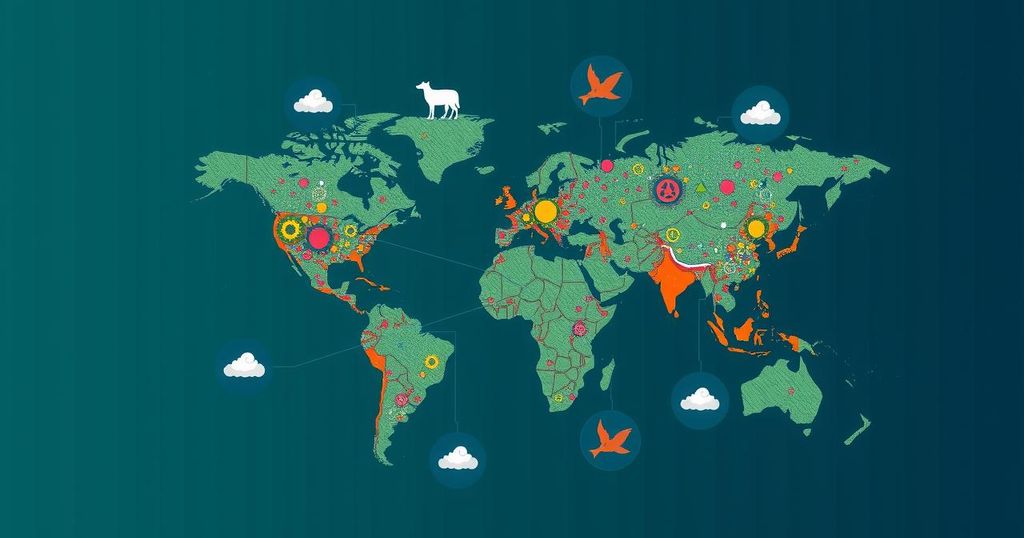A comprehensive report released by Lancet Countdown indicates that climate change is creating unprecedented threats to global health, with severe increases in deaths due to heat, the spread of diseases, and the impact of extreme weather events. Released amidst escalating global temperatures and prior to significant climate discussions, it highlights the necessity for immediate action to prevent further health crises.
A recent report highlights the severe impact of climate change on global health, presenting unprecedented challenges across various metrics. The document, released as 2023 is projected to be the hottest year on record, emphasizes a range of health-related issues exacerbated by climate-related disasters such as heatwaves, floods, and droughts. According to the experts from the Lancet Countdown team, which includes representatives from esteemed organizations like the World Health Organization, significant increases in extreme health threats are documented, with 10 of 15 tracked indicators reaching alarming new levels. This report serves as a call to action as the world prepares for the upcoming United Nations COP29 climate discussions in Azerbaijan. Marina Romanello, executive director of Lancet Countdown, stated that the findings illustrate “record threats to the health and survival of people in every country, to levels we have never seen before.” Among the crisis indicators, the mortality rate due to heat among individuals aged over 65 has surged by 167 percent since the 1990s. Furthermore, the spread of vector-borne diseases, rising from a climate-influenced habitat expansion for mosquitoes, has contributed to an escalation in global health issues, evidenced by over five million dengue fever cases last year alone. The report also discusses the alarming rate of deforestation and its implications for carbon absorption, with an estimated five percent of tree cover lost between 2016 and 2022. The authors criticize the fossil fuel industry, which received substantial financial backing during recent geopolitical crises, thus fueling climate change. In 2022, fossil fuel subsidies amounted to a staggering $1.4 trillion, overshadowing commitments directed toward a sustainable future. Despite these dire warnings, the report did highlight some positive developments. Deaths linked to air pollution from fossil fuels have decreased, and the use of renewable energy sources for electricity generation has nearly doubled within five years. The emphasis on health considerations in climate negotiations has also seen an uptick, marking a potential shift in policy focus. Romanello warns, “If action is not taken today, the future will be very dangerous… there is really no more time to waste.” She urges individuals to adopt climate-friendly practices, such as supporting sustainable diets, using clean energy for travel, divesting from banks that invest in fossil fuels, and voting for environmentally proactive leaders.
The topic of climate change and its adverse effects on health has gained traction as the world faces escalating environmental crises. Recent years have seen a sharp increase in extreme weather events, prompting concerns from researchers and health experts regarding the long-term implications for human well-being. In light of the imminent United Nations COP29 talks, it is essential to understand how these changes affect public health and the environment. The Lancet Countdown is a coalition of experts who monitor and report on the relationship between climate change and health, offering insights into how global warming affects various health indicators. This year’s findings reflect a culmination of years of rising temperatures and worsening climate-related phenomena, highlighting an urgent need for action.
The report underscores the alarming threats posed by climate change to global health, emphasizing that immediate and sustained action is imperative. While there are some hopeful developments indicative of progress, the overall message conveys a dire need for comprehensive policies and individual actions to mitigate health risks as global temperatures continue to rise. Policymakers and citizens alike must prioritize climate considerations to ensure a healthier future for all.
Original Source: www.rfi.fr






